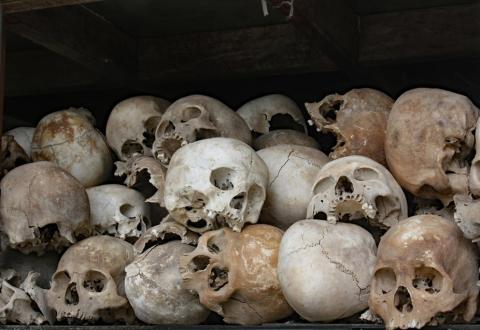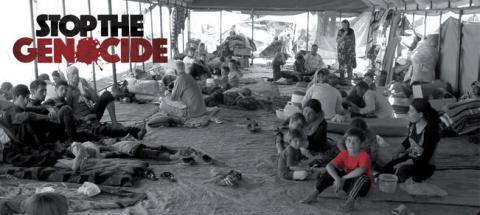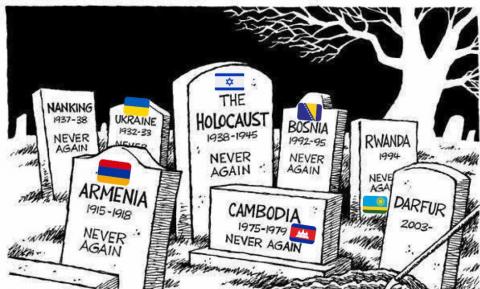+1(209) 348-9544
order@myessayservices.com
+1(209) 348-9544
order@myessayservices.com
![]() Are you in High School, College, Masters, Bachelors or Ph.D and need assistance with your research paper? All you need is to ask for essay help written by a specialist in your academic field. When you buy an essay from us, we offer you an original, nil plagiarized and unique paper written by a dedicated writer who is PhD or Masters qualified. MyEssayServices.com is an experienced service with over 9 years experience having delivered over 83,000 essays over the years.
Are you in High School, College, Masters, Bachelors or Ph.D and need assistance with your research paper? All you need is to ask for essay help written by a specialist in your academic field. When you buy an essay from us, we offer you an original, nil plagiarized and unique paper written by a dedicated writer who is PhD or Masters qualified. MyEssayServices.com is an experienced service with over 9 years experience having delivered over 83,000 essays over the years.

 The term genocide refers to the mass murder of a specific race or tribe or group of people with the sole intention of eliminating the said group. As the world came to realize with the discrimination of Jews by the Nazi forces, genocide does not sit on the same bench as other crimes such as burglary.The spirited effort towards the elimination of a single race or tribe is the driving force of this heinous crime. It is said “power corrupts and absolute power corrupts absolutely”.
The term genocide refers to the mass murder of a specific race or tribe or group of people with the sole intention of eliminating the said group. As the world came to realize with the discrimination of Jews by the Nazi forces, genocide does not sit on the same bench as other crimes such as burglary.The spirited effort towards the elimination of a single race or tribe is the driving force of this heinous crime. It is said “power corrupts and absolute power corrupts absolutely”.
At the center of genocide, power and resources are usually the propagators of this vice. In a state in which the availability and distribution of resources is anything short of equal, negative ethnic traits such as tribalism, nepotism and even clan-ism, in other cases, can easily result in the onset of genocide. Greed is also a consistent feature of many genocide-stricken states. The more worrying issue, apart from the killing of millions of innocent civilians, is the prejudice with which many of the leaders of these factions plan and coordinate these atrocities. The notion that leaders are well above the law is characteristic of states that have felt the iron grip of genocide.
The case of Darfur is one of the most disheartening. Darfur has been embroiled in the throes of genocide for the better part of the 21st Century. Having been the first genocide of the 21st Century, the mention of Darfur does not resonate well on the global landscape. Upon the realization of freedom from the British, Sudan had little time to pause and draw a clear and concise roadmap that would spearhead development. For the large remainder of the 20th Century, Sudan suffered civil wars as the Northern Muslims fought with the Southern non-Muslims.
The fact that Northern Sudan was more commercially viable than the South sparked off the civil wars, with both sides fighting to control the North. The turning point came when the government in the North decided to undertake ‘ethnic cleansing’ by eliminating all non-Muslims from the state of Sudan. Government funded militia called the Janjaweed kicked off the ‘ethnic cleansing’ by fighting with the Sudanese Liberation Movement/Army (SLM/A) and Justice and Equality Movement (JEM). The result is the continued loss of many lives as innocent men women and children are caught in the hairs of the crossfire. Over 2.8 million individuals have been internally displaced, with a whooping 480,000 already dead.
The scars of this genocide haunt the Sudanese in the form of handicaps, displacement and death of loved ones. The destruction of the moral and unity fabric of the Sudanese society is the greatest damage that the Sudanese have suffered. Parents are forced to watch their children die while children are deprived of their childhoods. The genocide in the Darfur region of Sudan is one that bears far-reaching consequences and effects in equal measure. It remains a mystery just how the Sudanese will achieve national unity should the killings abate.
Background
The start of conflict between the various Sudanese groups is not the result of achieving independence from the British. There are a number of long-standing disputes between the Sudanese that have gradually escalated to the point of genocide. The oldest form of conflict is traced to the land disputes between the sedentary agriculturalists and semi-nomadic livestock keepers. The disagreements over farming land and herding fields between these two groups laid the foundation for the current genocide. The failure to resolve these problems in their teething stages is primarily responsible for the genocide. The failure of the two groups to realize common ground drove them into believing that violence and war was the only way they could have what they believed was rightfully theirs.
The propagation of this conflict slowly grew and over time encompassed a variety of issues that raised conflict between the two groups. The colonization of Sudan by the British only inflated issues as the Sudanese were forced to live in bitterness and discontent. Upon the departure of the British from Sudan, the old contentious issues resurfaced and this time in a more ugly fashion than before colonization.
Issues
 The central issue that results in genocide is the inequitable distribution of resources and power. Failure to distribute power and resources equally leaves one faction feeling shortchanged, and feelings of mass murder slowly follow. Sudan is no exception to this state of affairs and the feelings of discontent and alienation by the non-Arabs and non-Muslims led to the prompt formation of the SLM/A and JEM.
The central issue that results in genocide is the inequitable distribution of resources and power. Failure to distribute power and resources equally leaves one faction feeling shortchanged, and feelings of mass murder slowly follow. Sudan is no exception to this state of affairs and the feelings of discontent and alienation by the non-Arabs and non-Muslims led to the prompt formation of the SLM/A and JEM.
These two groups were geared at fighting for equality and fairness in the entire Sudanese state. The efforts by the government to suppress the non-Arab tribes and the subsequent uprisings only escalated the volatility of the situation. Both groups were bent on realizing their desires devoid of compromise, an inevitable feature of conflict resolution.
Favoritism also plays a key role in the onset of genocide in Sudan as well as other parts of the world in which this crime has reared its ugly head. In the case of Sudan and the Darfur genocide, the segregation of Sudanese Arabs in elitist tendencies was the spark in this raging fire. Upon the formation of the government, almost all officials that were appointed to head various department of the toddler government were the Arabs. This outright favoritism and superiority complex in the Sudanese Arabs jolted the other ethnic groups into ganging up against them.
Further discrimination of non-Muslims by the government also fueled the fire that Darfur burns in to date.
The absence of a strong government that is willing to end the genocide in the Darfur region is also a stumbling block to realizing the end of this massacre. The involvement of the state in the genocide by funding, as well as, arming the Janjaweed militia plays a central role in the failure of achieving a ceasefire between the two groups. It is difficult for a state to solve a problem of which it is a key player. The resistance faced from the government officials in ending the genocide is also responsible for the current state of affairs in Darfur.
Research and Analysis
Inhibitors to the Realization of a Solution. The biggest reason as to the failure of finding a solution is the involvement of the government.Through its efforts in supporting the Janjaweed militia, the government shows that it supports the superiority and elitist claims that this militia tirelessly champions. Asking this same government to denounce the militia and end the genocide is akin to asking the government to admit its folly and pivotal roles in supporting the genocide. Even for the most committed of philanthropists, swallowing one’s words and pride remains a tall order. For the Sudanese government, its involvement in the genocide has surpassed the point of return and now the government cannot jump ship. Their fates are intertwined, and they will only sink if they do so together.
History has a way of repeating itself. The injustices suffered by the minority ethnic groups of Sudan have left a permanent scar on their lives. Asking these individuals to suddenly forget all these atrocities is almost impossible. The spirit of vengeance burns brightly in the bosoms of the minority Sudanese.
This has been a stumbling block towards achieving peace as those Sudanese that seek vengeance seek it for themselves and their ancestors and fallen loved ones. Many of those that fight on have vowed to do so to death, and this only worsens a scenario that is at its worst. Many of these Sudanese who continue fighting will end up dead like their ancestors, and for the same cause. This is a saddening feat, seeing that it highlights the inability of the Sudanese society to learn from its past mistakes.
Possible Solutions
The key towards finding a solution to genocide is addressing the underlying contentious issues. By addressing the bones of contention, a lasting solution can be achieved. In the case of Darfur, land disputes between the warring factions must be addressed. Solving these land issues in a free and fair manner that is devoid of favoritism and bias will ensure that both parties cease fighting. Dividing the land or promoting cohabitation by both groups can provide a lasting solution to the land disputes. In the case that the land is profitable, cost sharing in investment and dividing profits equally can be an avenue towards finding lasting peace in Darfur.
The United Nations is a pivotal organization in the world, seeing that it oversees every important facet of the global financial, political and social landscape. Taking a stronger stand on matters genocide in the world will provide a safety net for the millions of innocent civilians that are affected by genocide. Having its own standing army will also bolster the international presence of the United Nations. Reliance on member states to contribute soldiers from their own armies slows down the response ability of the United Nations. This is because many member states consider the political implications of their support when the country being affected by this action is considered an ally or a potential enemy. There is a great need for the United Nations to have such standing forces that are specially trained to handle such conflicts.
Last but not least, physicians always insist that prevention is better than cure, and there is no exception to this rule. Every nation must be alert to potential discords and move swiftly to nip them in the bud. In the case of Darfur, had the government then seen the potential that the discord between the warring groups had, they would have taken swift action to prevent the development of the dispute into genocide.
Recommendation
 The Sudanese government, as well as, the rogue militias should eat humble pie and admit the wrongs that they have done. It is only by both parties admitting their wrongs to each other that the Darfur genocide stands a chance of remaining in the past.It is also necessary that the United Nations take a bold stand on the Darfur genocide. It does not help to have a dog which only barks but does not bite. The United Nations is charged with the mandate of ensuring peace and equality in this world. It should flex its muscle on matters genocide as a warning to all those leaders who think themselves above the law. The equitable distribution of resources and power proves the best method to combat genocide, seeing that this approach saved Rwanda from the flames of genocide.
The Sudanese government, as well as, the rogue militias should eat humble pie and admit the wrongs that they have done. It is only by both parties admitting their wrongs to each other that the Darfur genocide stands a chance of remaining in the past.It is also necessary that the United Nations take a bold stand on the Darfur genocide. It does not help to have a dog which only barks but does not bite. The United Nations is charged with the mandate of ensuring peace and equality in this world. It should flex its muscle on matters genocide as a warning to all those leaders who think themselves above the law. The equitable distribution of resources and power proves the best method to combat genocide, seeing that this approach saved Rwanda from the flames of genocide.
By having leaders who oversaw the equitable distribution of power and resources, Rwanda has overcome the divisive hatred that pitted the Tutsi against the Hutu. If this approach is considered in Darfur, perhaps the genocide will become a stain left in the past.
Summary
Genocide is the mass murder of a specific group of people for a specific reason, more often than not racial or ethnic. It is a crime that holds no place in any society, in this world. Just like Rwanda, Darfur now lays at a crossroads. The fighting has gone on for too long, and it is time that the Sudanese resolved to solve this problem. The election of fair and just leaders who will ensure equitable distribution of resources and power, as well as, the mend the national unity fabric will end the turmoil that has become the way of life of the Sudanese people.
Bibliography
Cheadle, Don, and John Prendergast. Not on Our Watch: The Mission to End Genocide in Darfur and Beyond. New York, N.Y.: Hyperion, 2007.
Friedman, Mark. Genocide. London: Raintree, 2013.
Levy, Janey. Genocide in Darfur. New York: Rosen Pub, 2009.
Prunier, Gérard. Darfur: The Ambiguous Genocide. Ithaca, NY: Cornell University Press, 2007.
Steidle, Brian, and Gretchen Steidle Wallace. The Devil Came on Horseback Bearing Witness to the Genocide in Darfur. New York: Public Affairs, 2007.
Totten, Samuel. The Prevention and Intervention of Genocide. New Brunswick, N.J.: Transaction Publishers, 2008.
Browse More Essay Topics 24/7/365 Support 11+ Yrs in Essay Writing Pay for Quality not Quantity Score that A+ Grade
Affordable Papers
Research Paper for Sale
Cheap Research Papers
Buy Term Papers
Buy Research Paper
Write My Paper
Buy an Essay
Cheap Essay Writer
Write my Essay
Thesis Help
Dissertation Help
Paper Writing Service
Pay for Homework
Pay for Research Paper
Do My Essay for Me
Pay for Essay
College Papers for Sale
Do My Homework for Me
College Essays for Sale
Buy Research Papers Online
Buy College paper
Client: "(Berlin, G.K., CA)"
Topic title:"Leadership shortfalls in Blue Chips"
Discipline: "Economics"
Pages: 5, (APA)
" Awesome, the writer delivered it as required by the professor. They also sent me a plagiarism & grammar report Wow!. I was worried about how the essay would turn up but this is exactly what wanted. Thank you and will be back with a longer essay"
Accounting Research Papers
Business Research Papers
Communication Research Papers
Computer Science Research Papers
Economic Research Papers
Film Studies Research Papers
Finance Research Papers
Geography Research Papers
History Essays
Psychology Research Papers
Political Science Research Papers
Nursing Research Papers
Mathematics Essays
Management Essays
Literature Essays
Law Essays
World Affairs Essays
Technology Essays
Sociology Essays
Science Essays
Religion Essays
+1(209) 348-9544
Terms
Privacy
Sitemap
Frequently Asked Questions
0% Plagiarism Guarantee
Money Back Guarantee
Revision Policy
